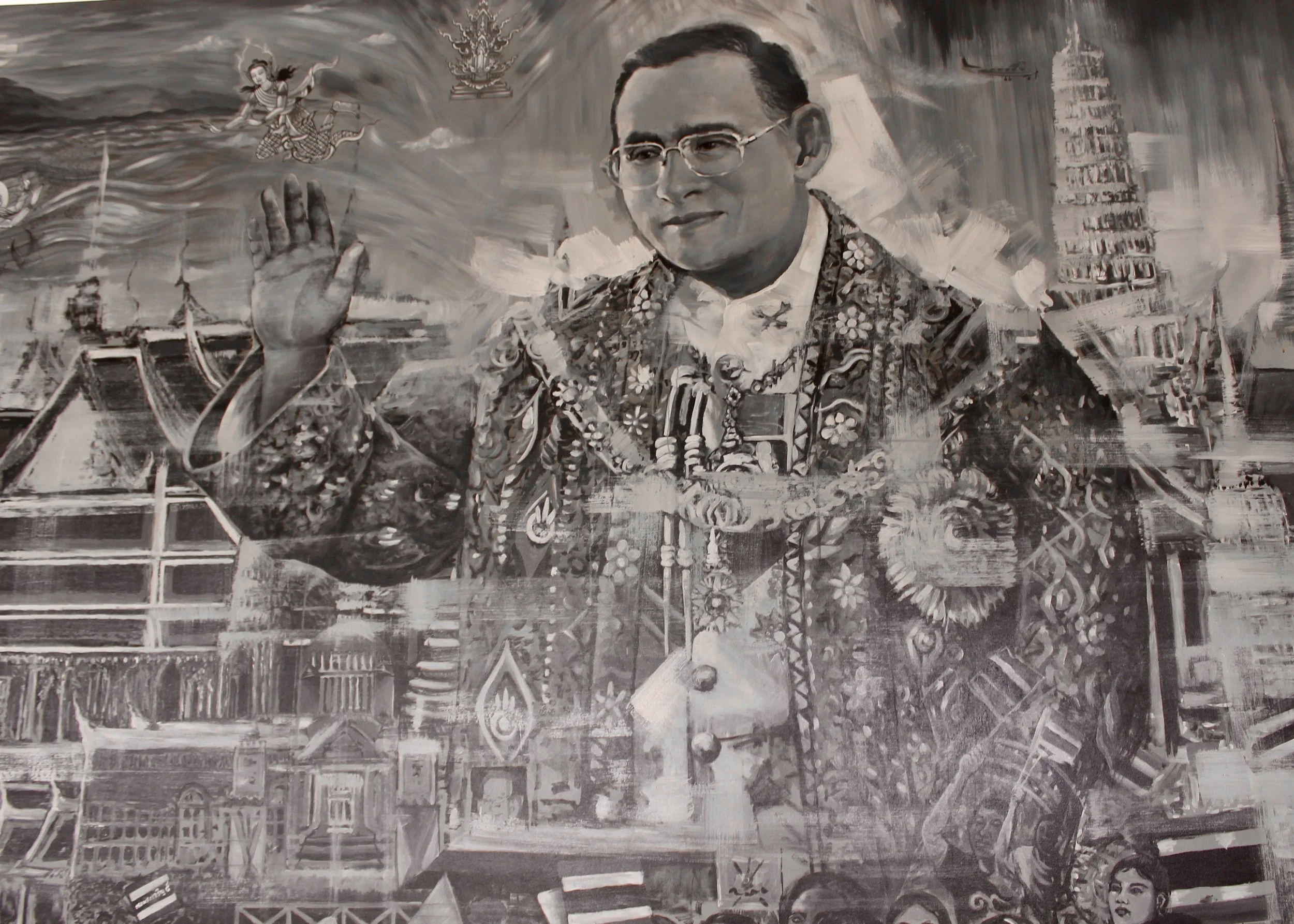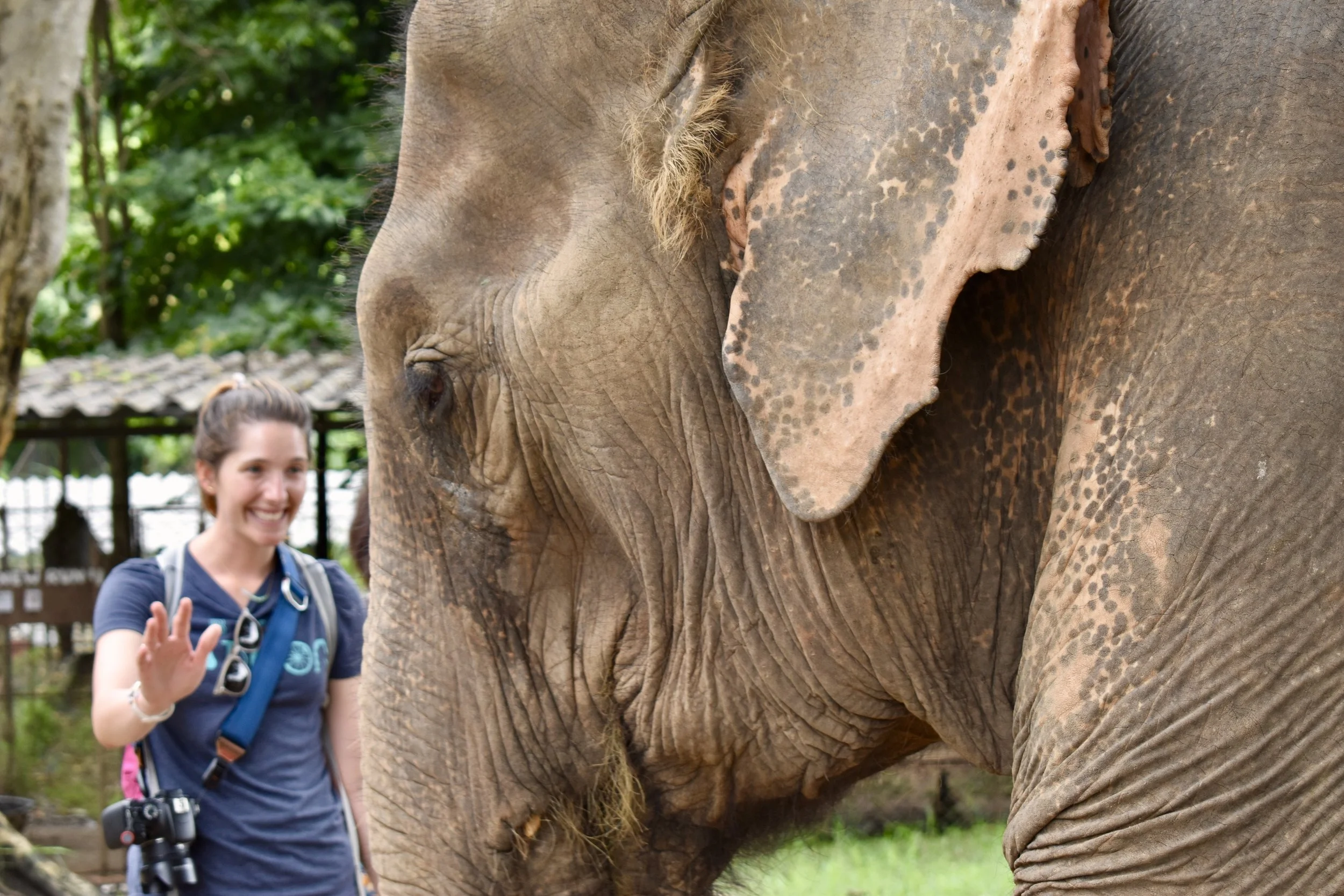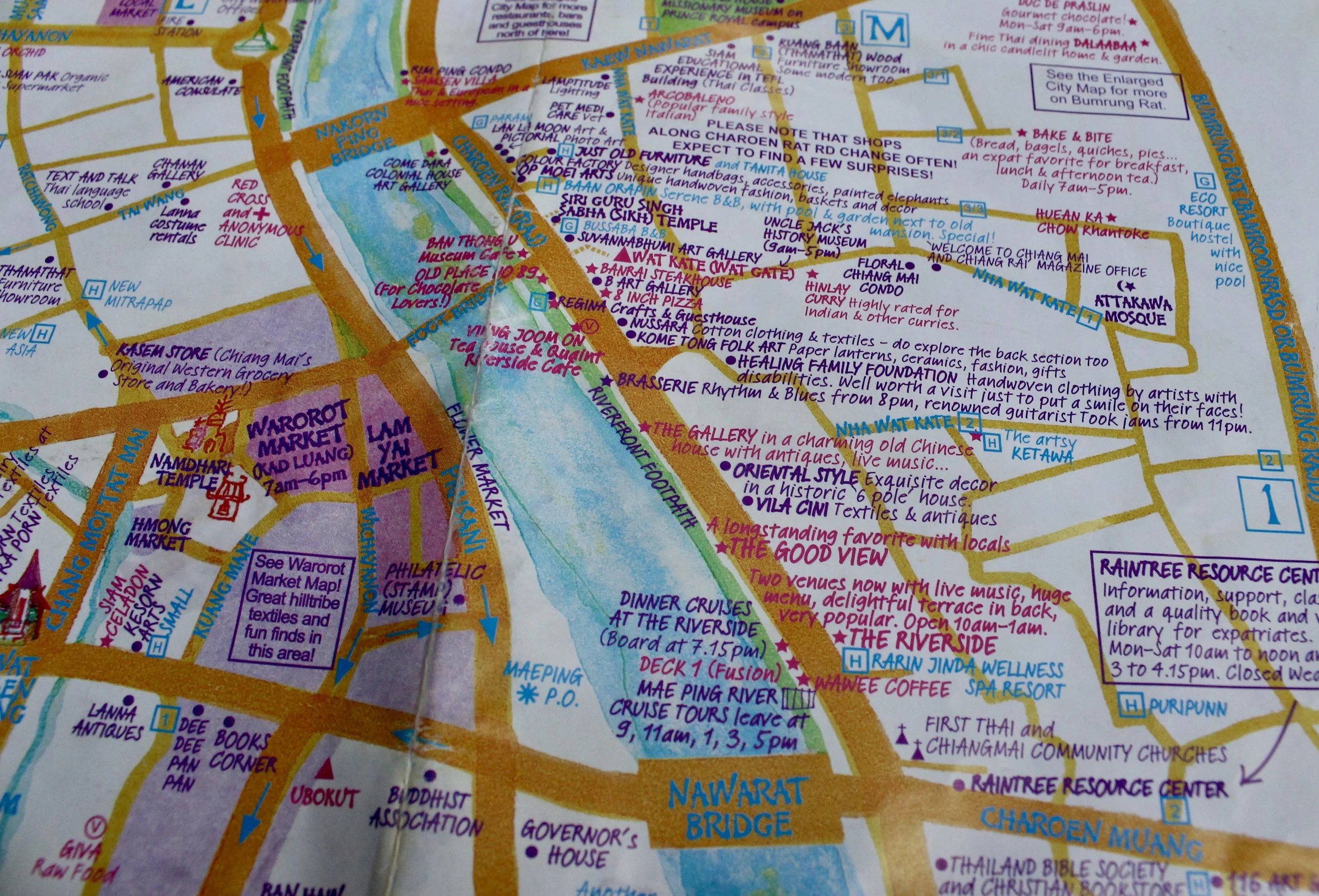Thailand: A Country in Mourning
Thailand’s nickname is The Land of Smiles, but the country is decidedly darker than usual. It’s in mourning. In October 2016, Thailand’s beloved King Bhumibol Adulyadej died. He was one the longest reigning monarchs in the world, having led Thailand for 70 years.
Now, nearly one year later, many men, women and even children still wear all black, especially in larger cities. Black and white garlands shroud schools, banks, hospitals, temples, and government buildings. Images of the King playing the saxophone, holding a camera, or waving from beneath aviators are blown up on the sides of buildings. Even independent store owners show off shrines to him, and artisans volunteer their crafts for funeral projects.
Many things strike me about this display of grief, from how prolonged, to how public, to how communal.
When tragedies happen in the States, the mourning seems confined to newsfeeds. Everyone shouts a different opinion, and then the story fades into the internet ether. Some things transcend the online world, but for how long? Some things are more personally tragic, but how often is it hidden?
Around the time I considered public mourning in Thailand, the racist attack in Charlottesville occurred. I listened to and read the news from the other side of the world, and it seemed as though people had come together in shock, anger, and yes—grief.
But I wonder, are people still mourning the death of Heather Heyer? I hope so.
Perhaps I’m simply romanticizing the power of grief. It is in fact illegal to say anything negative about the King in Thailand. It could be these displays are forced, by the government or economy. Stores showcasing love for the late king probably make more money.
It could also be that Thai people don’t want to move on. From what I can tell (from very elusive answers to my questions), people loved the late king, and feel abandoned by the current one.
So are people stubbornly holding on to the past? Does love of country and its royals go that deep? Did people just forget to take down the banners?
Or is a communal, public, and prolonged display of grief something more profound, offering real healing and transformation?
By Mel Grau











